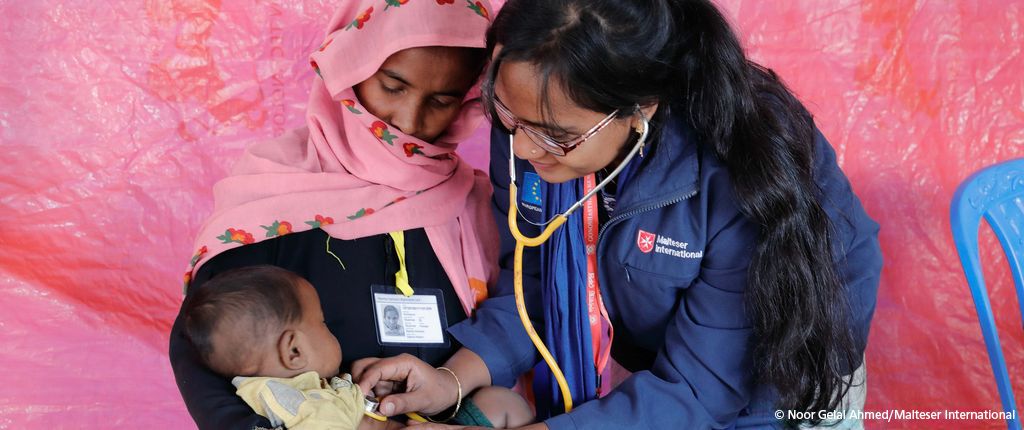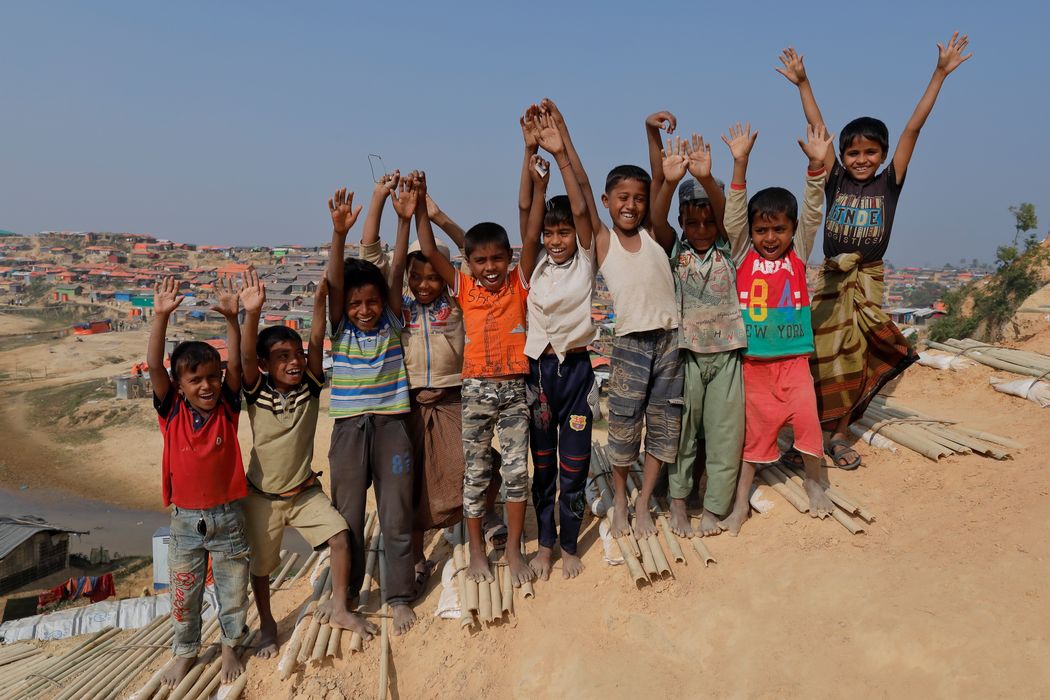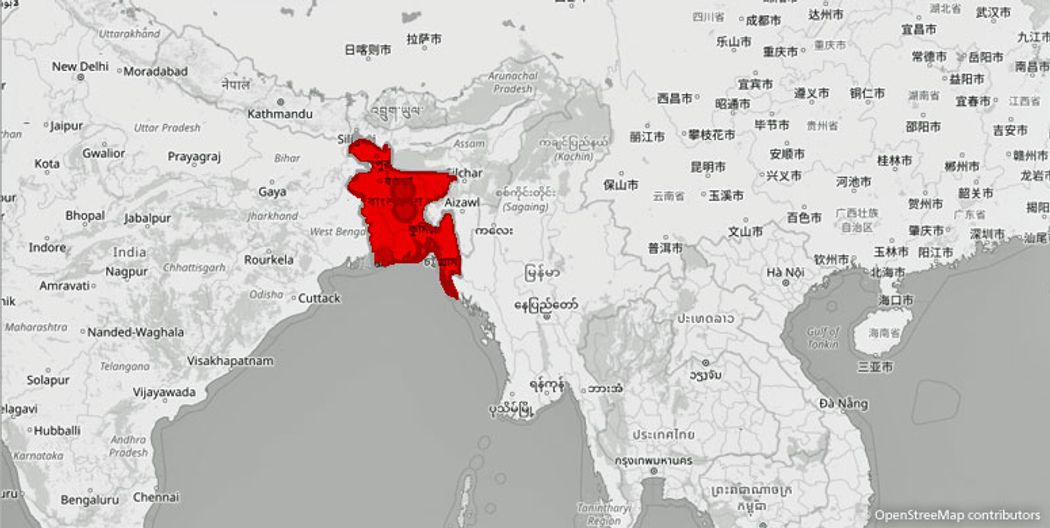Putting people first
The ToGETHER project empowers local actors in Bangladesh and focuses on people-centered aid. These are real stories of impact.
Read more
In August 2017, over 700,000 ethnic Rohingya people from Myanmar fled their homes to escape a horrific wave of violence. Most of them fled to neighboring Bangladesh, where they joined hundreds of thousands already living in refugee camps in the country's south-eastern districts of Cox's Bazar and Bandarban. Neither the Government of Bangladesh nor the international community were prepared for what would become the fastest-growing refugee crisis in the world.
Many of them suffered serious injuries and psychological trauma from their experiences and arrived with barely any possessions. They are in need of food, adequate healthcare and shelter as well as clean water. Hygiene and sanitary conditions inside the overcrowded camps are also very poor, meaning the risks of deadly diseases spreading quickly are high, especially in the rainy season.
In order to improve the desolate conditions in the refugee camp, our work mainly focuses on the areas of health, hygiene, nutrition and psychosocial counselling. In three health centers, we provide medical care, especially expectant mothers and newborns, and provide psychosocial counselling. In addition, to stem the spread of diseases, we conduct health and hygiene trainings in the camps and have improved sanitation facilities at schools and community clinics.
Because the local communities close to the refugee camps are struggling with high levels of poverty, we support them to find new sources of income and to represent their political interests effectively at community level so that they can find their own sustainable way out of poverty.
Likewise, through our local partner organizations, we provide emergency aid in the event of natural disasters such as floods and work to strengthen local actors.
The ToGETHER project empowers local actors in Bangladesh and focuses on people-centered aid. These are real stories of impact.
Read moreFrom floor mat weaving to poultry farming and sewing reusable bags, Shibani is turning small steps into big change for her family. With support from Malteser International and Mukti Foundation, she’s building a resilient, self-reliant future one skill at a time.
Read more65-year-old Mohammad Akter (name changed) fled Myanmar in 2017 and now lives in the world’s largest refugee camp. One object connects his past and present: a wooden armchair he carried on the long journey.
Read moreNur Kaida was shocked to discover she was pregnant. Unsure how to provide for two children, she began eating less to cope. Thankfully, a Community Health Worker visited her just in time.
Read moreIn May, Cyclone Mocha hit vulnerable communities in Cox’s Bazar and Myanmar’s Rakhine State. Strong winds and heavy rains caused flooding, landslides, and widespread damage. Tens of thousands were affected. Here’s how we responded.
Read moreWhen Koli’s period stopped, she couldn’t even afford a pregnancy test. Relief came when a Community Health Worker told her about the nearby Amjakhali Community Clinic, where she sought help.
Read moreFor nearly three years, Dr. Sadia Afroz has managed a clinic in the world’s largest refugee camp in Cox’s Bazar to support Rohingya health. We spoke with her about her work, the challenges, and what keeps her going.
Read moreIn the early days of a crisis, media coverage is intense, but soon fades, along with public interest and aid. Yet the emergency continues. Bangladesh is one of three countries spotlighted in the #IntoFocus campaign, which aims to raise awareness of forgotten crises.
Read moreSince 2017, hundreds of thousands of Rohingya have found safety in Bangladesh. But for many, like Jamalida, survival isn’t enough: “We have food, but no peace. Home is still my house in Myanmar.”
Read more“I’m always there for them, day or night”. 50-year-old Fatema is one of around 100 community health workers at our clinics. With Gonoshasthaya Kendra (GK), she supports pregnant women in the world’s largest refugee camp.
Read moreThe Rohingya are one of the many ethnic minorities in Myanmar. The vast majority are Muslim living in mainly Buddhist Myanmar. They have been called the "world's most persecuted minority". Find out why.
Read moreYasin Sadak* still feels pain from the gunshot wounds on his forearm and hand, a horrific experience that would remain with him. He remembers the fateful night in August 2017, when he was shot while running away from armed men who had attacked his village in northwestern Myanmar.
Read moreRajuma is only 30 years old, but has endured the most unimaginable horrors. During brutal attacks in Myanmar, Rajuma lost everyone in her family, except one of her five children.
Read moreAs a sponsoring partner, your regular donation gives real, life-changing help to people in need in our project regions. Your commitment helps us plan ahead and bring about long-lasting impact.

Your regular gift secures a future!

Project regions:
Bagerhat, Cox’s Bazar, Kurigram, Satkhira, Sunamganj
Partners:
Gonoshasthaya Kendra (GK), Association for Alternative Development (AFAD), Centre for Disability in Development (CDD), Mukti Foundation, Programme for Helpless and Lagged Societies (PHALS), and Efforts for Rural Advancement (ERA)